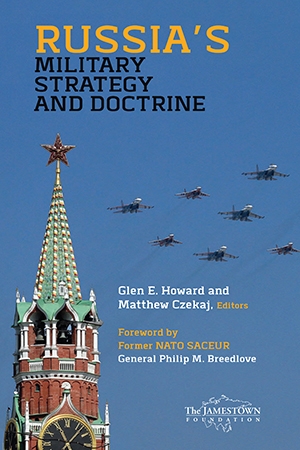
- 2019/444 pages
- Distributed for The Jamestown Foundation
Russia's Military Strategy and Doctrine
Paperback: $24.95
ISBN: 978-0-9986660-1-3
Ebook: $24.95
ISBN: 978-1-7352752-8-4
How does Russia fight wars? How are its experiences with modern conflicts shaping the evolution of its military strategy, capabilities, and doctrine? Addressing these questions, the contributors to Russia's Military Strategy and Doctrine consider strategic-level issues ranging from hybrid warfare, to the role of nuclear weapons, to cyber and electromagnetic warfare, to Moscow's posture in various geographic regions.







